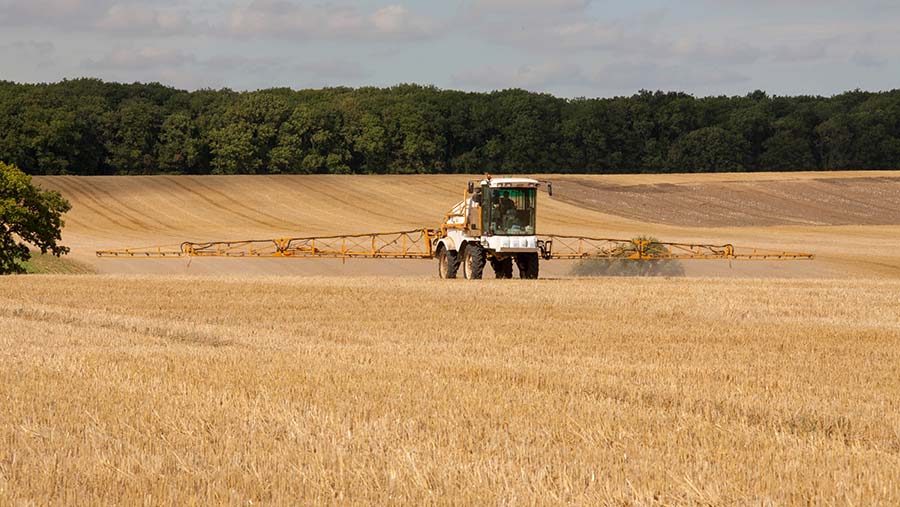Canada stands by decision to relicense glyphosate
 © Tim Scrivener
© Tim Scrivener The world’s most popular weedkiller, glyphosate, does not pose a risk to human health, according to regulators in Canada.
Health Canada, the governmental department that is responsible for health held a review into its April 2017 decision to re-approve glyphosate for use for another 15 years.
It followed eight notices of objection and concerns about “the validity of some of the science around glyphosate”.
See also: Opinion – Life without glyphosate is hard to contemplate
Glyphosate is the key active ingredient in Monsanto’s Round-Up branded agricultural herbicides, which have been used by farmers since 1974.
Canadian government scientists also reviewed the information referred to as the Monsanto papers, a wealth of internal documents that have been released since March 2017 following a US lawsuit by a cancer victim against Monsanto (now part of Bayer).
Based on the evidence, the scientists concluded that the concerns raised by the objectors “could not be scientifically supported when considering the entire body of the relevant data”.
Global position
In a statement, it said: “No pesticide regulatory authority in the world currently considers glyphosate to be a cancer risk to humans at the levels at which humans are currently exposed.
“We continue to monitor for new information related to glyphosate, including regulatory actions from other governments, and will take appropriate action if risks of concern to human health or the environment are identified.”
In November 2017, the EU settled a dispute over the weedkiller and granted a five-year extension to glyphosate’s licence following a bitter row over its safety between green groups and farming organisations.
In 2015, the World Health Organization’s cancer agency, the IARC, concluded that glyphosate was “probably carcinogenic to humans”.
But a number of international food safety regulators, including the European Food Safety Authority (Efsa), have determined that glyphosate poses minimal risk to non-target plants and animals when used appropriately.
NFU campaign
The NFU, which launched its own #glyphosateisvital Twitter campaign in January 2017, is concerned that a ban on glyphosate use in the EU in the future could prompt an unfair playing field between UK farmers and farmers across the world – especially if the UK must adhere to EU rules on pesticides post Brexit.
Such a scenario could see farmers in the UK banned from using glyphosate, but food products imported into this country from areas where the pesticide is still available for use.
